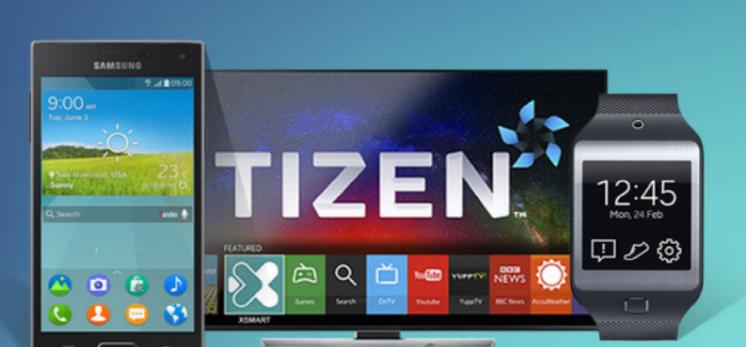Trainee reporter Yi Shan
Following BlackBerry's announcement to stop updating the BlackBerry mobile phone service system, the future of Samsung's Tizen system has also become blurred, and the Samsung Tizen app store has recently been exposed to be closed, and watches have also begun to abandon the system.
The Tizen App Store is officially closed
According to foreign media reports, the Tizen app store has been displayed closed, and mobile phone users and web pages are no longer accessible.
As early as last June, the Samsung Tizen app store has no longer registered for new users, and although old users can continue to access, they have been restricted in their functions, that is, they can only download and use programs previously recorded by the account.

According to public information, Tizen is the two major Linux alliances, the LiMo Foundation and the Linux Foundation, which integrate resource advantages and work with Intel and Samsung Electronics to jointly develop operating systems for mobile phones and other devices. It was officially announced in February 2012.
Samsung launched the Tizen operating system to combat the monopoly of the mobile market by the two major systems of Android and iOS. However, as a second-tier operating system, Tizen, like Window Phone and BlackBerry, faces the problem of difficulty absorbing enough developers. After all, nokia and HP had both abandoned their mobile operating systems before that.
Tizen then set its sights on low-end smartphones, and in early 2015, Samsung launched its first mobile phone with Tizen system, the Samsung Z1, which cost INR 5700 (about 568 yuan at the time), but only in the Indian market.
Since then, Samsung has also gradually applied the Tizen system to other products and began to open up around the world, and its application scenarios include wearable devices, netbooks, tablets, car messaging entertainment devices and smart TVs in addition to smartphones.
In 2016, Samsung's Tizen system once surpassed BlackBerry to become the world's fourth largest mobile phone system. However, from the perspective of market reaction, it is too early for Samsung to challenge the two major systems of Apple iOS and Android, and it is understood that the last Samsung Z4 mobile phone equipped with Tizen system was released in 2017.
At present, Samsung TVs and watches are still equipped with tizen systems, of which the Galaxy Watch4 series watches launched by Samsung last year have been replaced by Google's Wear OS, so there is also news that Samsung may shut down the entire Tizen system in the future.
However, last year, Samsung also announced at the developer conference that it will return to the cloud gaming industry and will enter the cloud gaming field through its Tizen smart TV. Due to the huge shipments of Samsung TVs, Tizen is still the world's largest TV system, so the future of Samsung Tizen systems is still foggy.
The acquisition is being evaluated, and Samsung's profits have soared
According to foreign media reports, Han Zongxi, vice president and co-CEO of Samsung Electronics, revealed at CES 2022 that Samsung is carefully evaluating acquisition proposals in many areas, and soon there will be good news, "Our action is faster than people think, and Samsung is considering mergers and acquisitions of components and finished equipment." ”
Samsung has previously said it will seek "meaningful" M&A deals within three years and consider acquisitions in artificial intelligence, 5G and automotive.
As the world's largest consumer electronics company, Samsung is not active in foreign mergers and acquisitions, it is reported that the largest merger and acquisition was in 2017, in March of that year, Samsung announced that it spent $8 billion to acquire HARMAN International Industries. HARMAN International owns JBL, Harman Kardon and Infinity, AKG, Becker and other professional audio brands, in addition to providing audio, navigation and other related solutions for domestic and foreign car manufacturers.
Last November, Samsung Electronics announced that it would invest about $17 billion in Taylor, Texas, to build a chip factory that is expected to be operational in the second half of 2024.
At the end of December last year, Samsung's semiconductor factory in Xi'an was affected by the epidemic and adopted fully closed management measures, and then Samsung Electronics sent a letter to customers to notify that it expected that the manufacturing capacity of NAND products may be affected by the epidemic in Xi'an, and temporarily stopped quotations. Global semiconductor giant Micron Technology also announced that the factory in Xi'an may delay delivery due to the impact. The stock prices of global memory chip giants have risen significantly.
In terms of performance, Samsung expects to fully announce financial results at the end of this month. However, according to Samsung's disclosure of the fourth quarter of 2021 financial guidance. Samsung's operating profit for the quarter is expected to be in the range of KRW 13.7-13.9 trillion (US$11.38-11.55 billion). Operating profit increased by 52% compared to the same period last year.
Samsung said the profit growth came from strong demand for server chips between October and December last year. While memory chip prices declined in the quarter, demand for DRAM chips and NAND flash memory chips is expected to remain strong in the fourth quarter, while growth in the PC manufacturing industry is expected to be flat with the previous quarter. Revenue in the fourth quarter of last year is expected to increase by 23.5% year-on-year to 76 trillion won, higher than expected, and set a record for quarterly revenue in history.
The industry expects smartphone shipments from Samsung's mobile business to be around 67 million units, up about 7% year-on-year and close to 69.3 million units in the previous quarter, although weighed down by marketing costs, the headwinds of parts shortages have also eased. Overall, Samsung's operating profit for the full year of 2021 may be 51.6 trillion won, an increase of 43.3% over 2020, and revenue will increase by 17.8% year-on-year to 279 trillion won.
EDIT: Captain